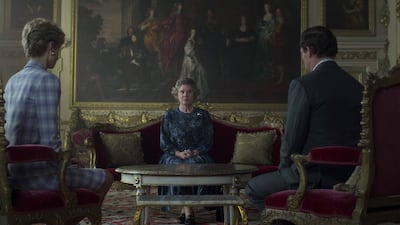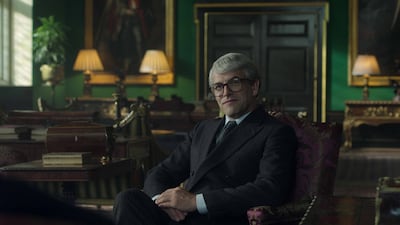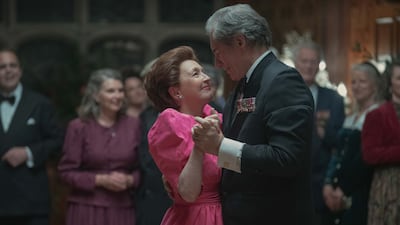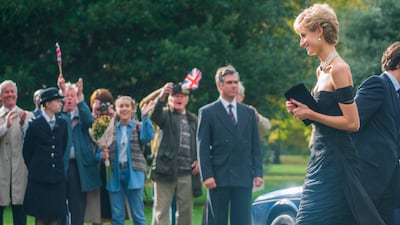It’s always a challenge starting a new job, but for King Charles III the first few months have been more than a little eventful.
A royal racism row, a fly-on-the-wall expose by his son and daughter-in-law reigniting family tensions and political turmoil with a sudden change of prime minister ― all whilst grieving for his mother, Queen Elizabeth II.
His short time on the throne has taught him that there is immense love for the royal family, counter-balanced by a growing brigade of anti-royalists.
It has also taught him that his main problems lie close to home, namely the fall-out coming across the Atlantic from his youngest son and his wife, Prince Harry and Meghan.
A steady start as UK united in grief for the queen
His tenure started in early September, surrounded by immense global grief for the late monarch. But through sadness came joy as the nation united to show the world how much their royal family truly meant to them.
As thousands joined snaking queues, in Scotland and London, to see the queen lying in state, while Buckingham Palace and the Palace of Holyroodhouse were covered in a sea of flowers, Paddington Bear toys and marmalade sandwiches, the new king was shown a glimpse of Britain’s love for their queen.
It was not only a show of affection for the late monarch, but also for their new king, as crowds offered him condolences while shouting "God Save the King".
But with 250,000 people viewing the lying in state of the queen’s coffin and more than 26.2 million people across the UK watching the funeral, King Charles was given a stark reminder of the size of the boots he now had to fill.
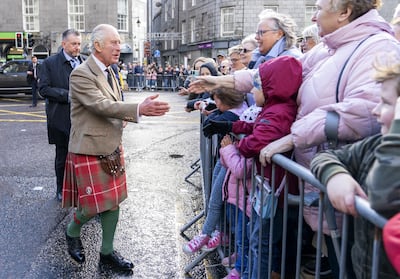
Royal commentator Richard Fitzwilliams said the king had experienced a colourful start to his reign from initial adoration to being brought back down to earth with a bump.
Last month, the king faced his first major scandal when Prince William’s godmother, Lady Susan Hussey, repeatedly asked prominent black advocate, Ngozi Fulani, where she “really came from” at a reception at Buckingham Palace.
Lady Susan, 83, had served as the late Queen Elizabeth’s lady in waiting for more than 60 years and had accompanied the queen at the funeral of Prince Philip. Her daughter is one of Queen Consort Camilla's official companions and was retained in the household by King Charles.
She resigned from the royal household and apologised after making the "unacceptable and deeply regrettable comments".
It left the royals looking red-faced as they battle to shake off previous accusations of racism and show their openness to diversity.
An in-person meeting between the pair may have soothed feelings, but it served only to fuel Prince Harry's anger that the royal family had failed to support Meghan when she suffered racist abuse.
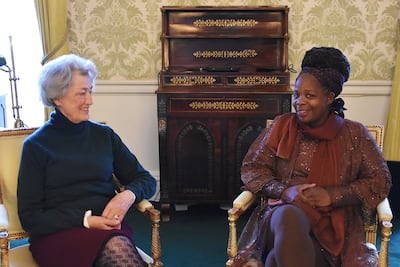
“It has certainly been eventful, up to a couple of weeks ago I would have said that it had been enormously successful because he has, in his accession speech, said very clearly that he grasped the nature of the changed job very, very well,” Mr Fitzwilliams told The National.
“His initial physical dynamism was impressive, there is no doubt at all, that he seems totally at ease in the job, the reference to his speeches with the South African president, the state visit went off extremely well, things initially seemed to be running very smoothly.
“Obviously his style is different from the queen’s, it has to be. But the race row is the thing, after the accession speech, that will be remembered, unfortunately.
“The reception was the first major reception Camilla had presided over and unfortunately it has descended into controversy in a way that couldn’t have been foreseen.”
Despite a show of unity at the funeral amid fall-outs surrounding Prince Harry and his wife Meghan, the king had included the couple in his inaugural speech as he told the world: “I want also to express my love for Harry and Meghan as they continue to build their lives overseas.”
But less than 100 days later, the couple, who now live in the US, released an explosive six-part documentary into their lives, reopening old wounds.
The final episodes were released on December 15 ― the day before King Charles marked his 100th day as the head of "the firm".
The Netflix series, entitled Harry & Meghan, explored the early days of the couple’s courtship and the challenges and controversies that prompted them to step back from the royal family.
It revealed more details about the rift with his brother, Prince William, and the now infamous meeting between the two of them, Prince Charles as he was then and the queen at Sandringham to discuss his decision to step back as a senior royal, he accused his father of lying and his brother of shouting.
The series followed their bombshell Oprah Winfrey interview in March 2021, which was watched by more than 17 million people in the US, in which Meghan spoke of feeling suicidal and accused the royal family of racism, while Prince Harry said his father had let him down.
The fall-out from the latest revelations will be further compounded with the publication of Harry’s autobiography, Spare, on January 10.
Whereas Harry’s latest real-life expose will inevitably do further damage to the family, the king is also battling the influence of drama series The Crown on public opinion as season five recently aired covering his divorce to Princess Diana and his affair with Camilla, who is now queen consort.
“One does wonder about The Crown,” Mr Fitzwilliams said. "It is part of an anti-monarchy agenda. I’m afraid the release of that is not helpful, it helps to colour people’s views.
“The monarchy remains extremely popular, but for young people, persons of colour and Scots it is different.”
This has been highlighted in two separate incidents in England in recent weeks where the monarch was twice pelted with eggs, in York and Luton, by young men showing their disdain for Britain having a monarchy.
Growing discontent with the monarchy came to the fore in 2021 when YouGov data showed that 41 per cent of 18-24-year-olds said they believed Britain should have an elected head of state, while only 31 per cent wanted to see the monarchy continue.

On Christmas Day, King Charles III will make history when he becomes the first king to make a televised Christmas message and, following in his great-grandfather's footsteps, he will also be at Sandringham.
It is now 30 years since the king officially separated from his former wife, in the year Queen Elizabeth called her “Annus Horribilis”.
Following the headaches of the last few weeks, one wonders if the king will be have her words echoing in his mind during his speech.
It is expected he will touch on the war in Ukraine and the unprecedented changes in the UK government’s party leadership that marked the start of his tenure, and the queen's platinum jubilee.
As 2023 approaches, the king is already looking ahead to his birthday parade, known as Trooping the Colour, which has marked the monarch’s official birthday for the past 260 years.
Buckingham Palace announced this week his official birthday will take place on June 17, weeks after his coronation ceremony on May 6.
The king’s official birthday is on the third Saturday in June, while his late mother’s official birthday usually took place on the second Saturday in June.
With more than 1,400 soldiers, 200 horses and 400 musicians taking part, 2023 can be expected to herald in his first year with great fanfare in a grand show of pomp and ceremony that he will be hoping will make his troubled first few months just a distant memory.







































